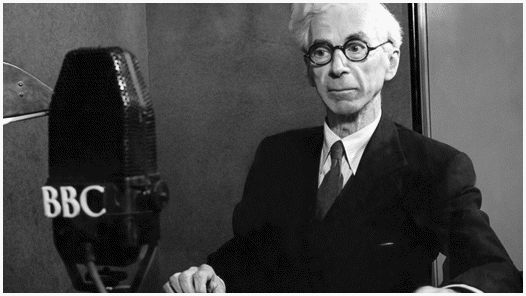A Vision for
The Future of Science
Martin Rees
(W. W. Norton)

- I cast no horoscopes and have no crystal balls.
He doesn't much care to try. He reminds us that "the great physicist Lord Rutherford averred that nuclear energy was moonshine," and that Thomas Watson, founder of IBM said "I think there is a world market for maybe five computers."
But he also reminds us that there are three inventions that have come on the scene in the last fifty years that were, initially, not seen to be all that "transformative." The first was the integrated circuit, first built in 1958, which has spawned the "worldwide reach of mobile phones and Internet."
Second, there was Crick and Watson's discovery of the double helix, which has made possible "genome sequencing, the 'read out' of our genetic inheritance." And finally there is ... space. Which has offered us a veritable Janus. "The threat of global nuclear annihilation involving tens of thousands of bombs" comes along with this more benign vision from the Apollo program:
- Distant images of Earth --- its delicate biosphere of clouds, land, and oceans contrasting with the sterile moonscape where the astronauts left their footprints.
Rees is a astrophysicist, but he is attempting in these four lectures to give us his world-view as well. Environmentalism, overpopulation, poverty, disease, the separation of science from the humanities, the problem of energy and energy storage, possible terrorist's genome attacks (e. g., synthesized SARS), aging with its eerie prospect of "too great an enhancement of lifespan." We will have a long time to contemplate whether "a longer lifespan is indeed an "improvement" ... for it depends on whether it is "years of full activity or those of senile decrepitude."
When they were handing out grace of style in scientific exposition, I am forced to the conclusion that perhaps Rees hasn't make it out of the starting gate yet. The writing here is pedestrian and many of his observations are so familiar as to be platitudinous. This book actually put me to sleep ... which, I hasten to add, cannot be blamed totally on the author: I had been somewhat sleepless in Seattle for a couple of weeks --- so it would have taken a powerful stimulant --- something on the order of Hunter Thompson or Paul Krassner or Dylan Thomas to keep me from nodding off.
Still, Rees does have his moments. He is the first writer outside of several science fiction masters to suggest the chilling thought that, when it comes to space travel, there might be those looking for "cut-price ventures," perhaps even seeking "one-way tickets."
He is the first to remind me of the sizable gap between my own childhood discovery techniques and those of the present generation. "Fifty years ago, inquisitive children could take apart a radio set or a motorbike, figure out how it worked, and even put it together again." The gadgets that now pervade young people's universe, mobile phones and such like, are nothing but baffling black boxes. You take one apart and whaddaya get: little chip-like thing-a-mububs that carry all their information squeezed down into a bite-sized chip that could never ever be teased out into recognizable information at all.
Rees, in trying to generalize, has fallen into the trap of gentle amiability, tedium ... too many mini-thoughts, too little fun. He's trying too hard to be helpful, doesn't throw around enough thought bombs. He can't see the forest for the trees.
He does, however, carry around a few eccentric touches that can endear. He imagines us meeting with Zogs from the other side of the universe, beings with seven tentacles.
- They'd gaze out, if they had eyes, at the same cosmos --- they'd trace their origins back to the same big bang.
"But they might find string theory," he concludes, "a doddle."
A doddle!